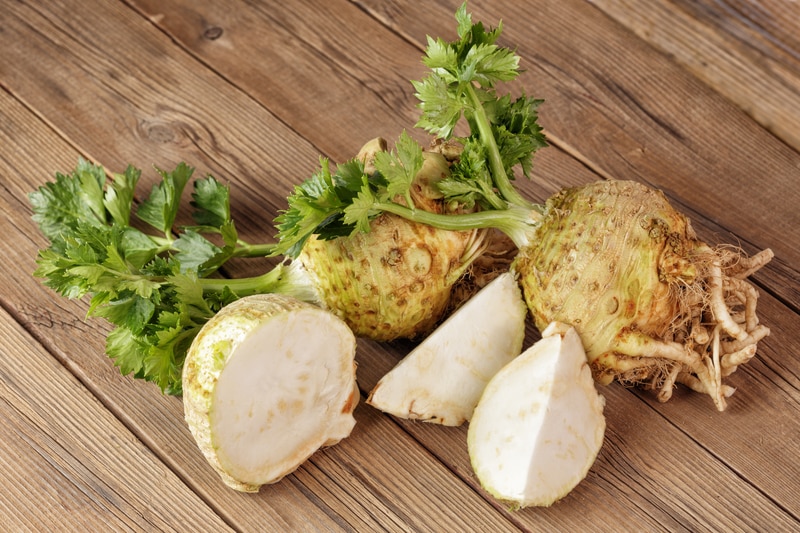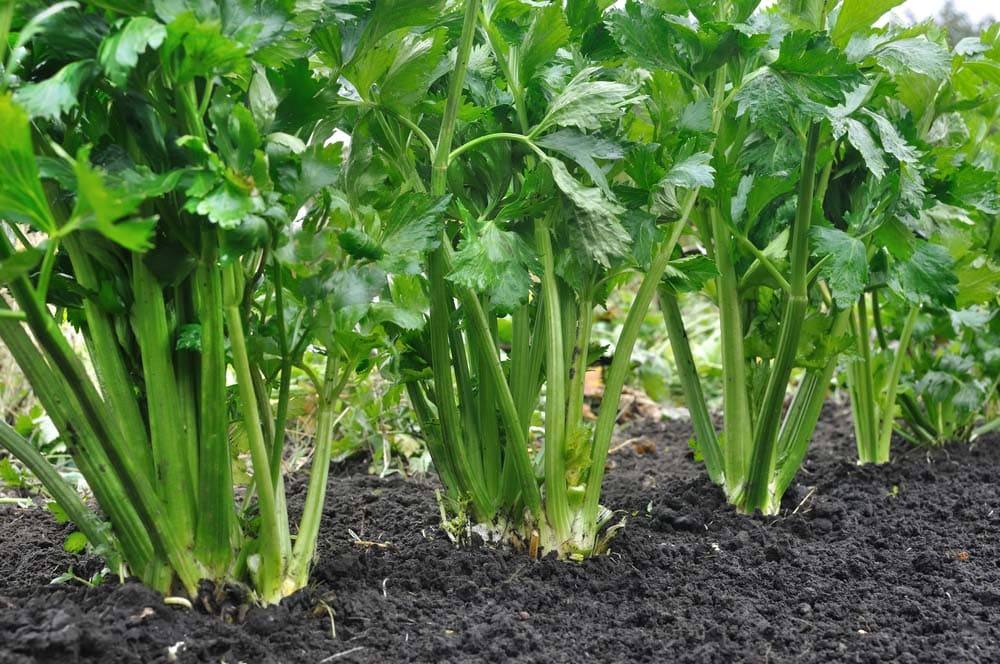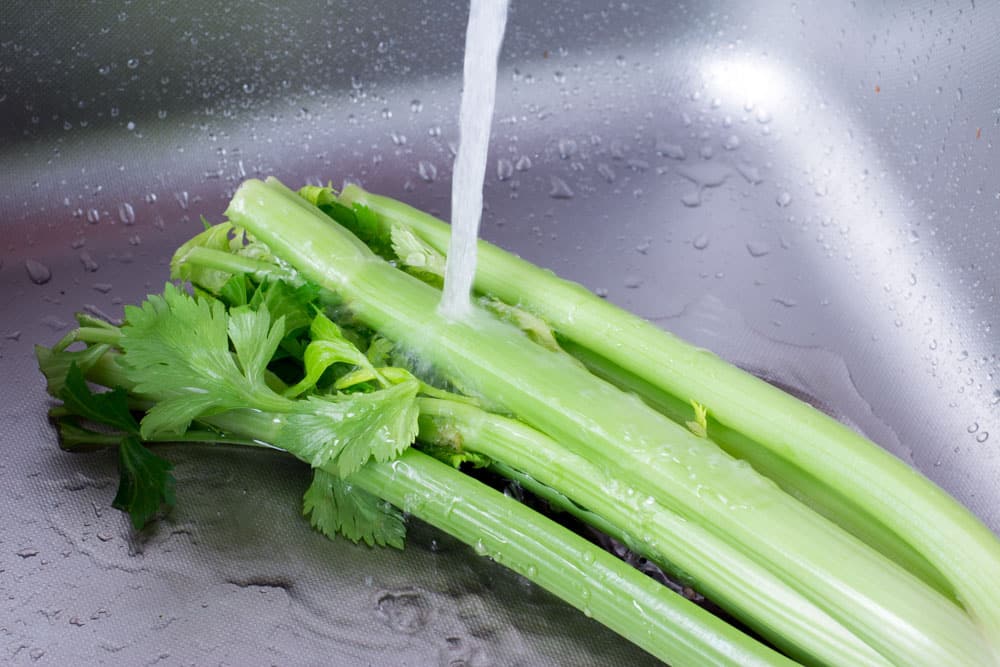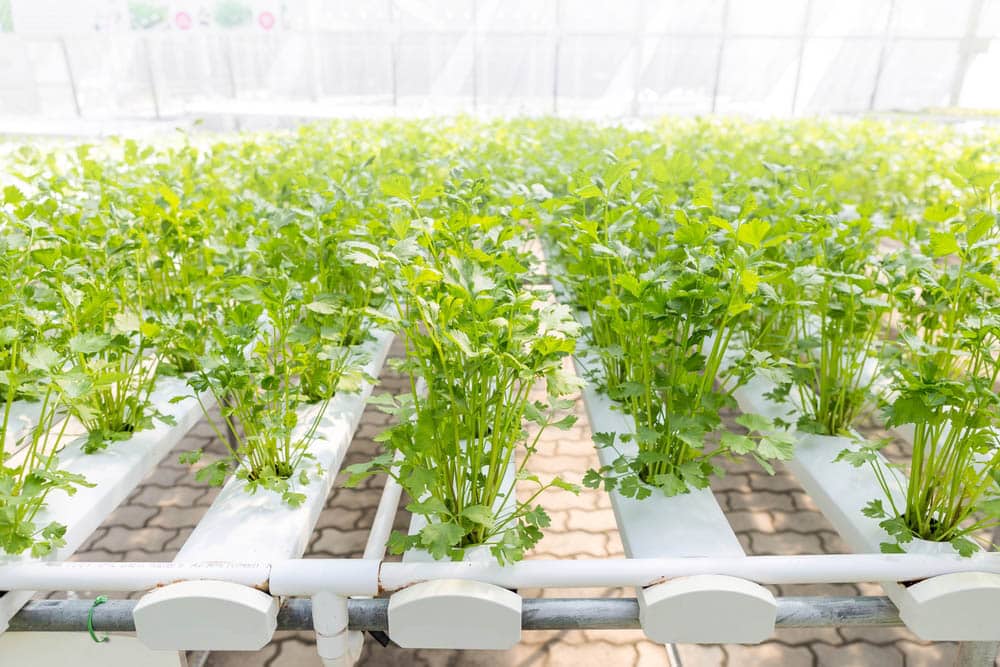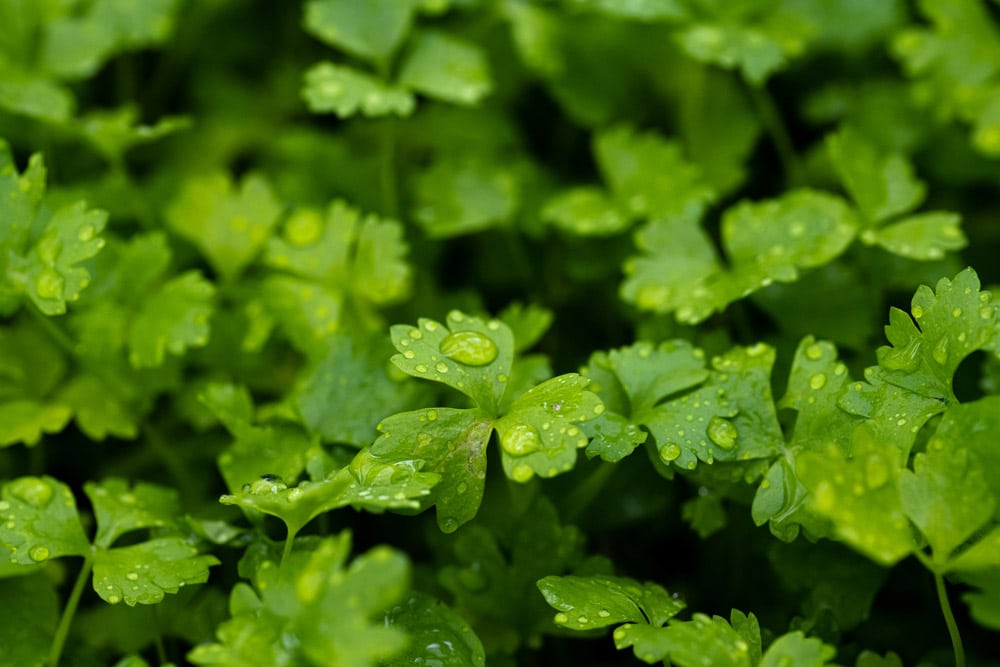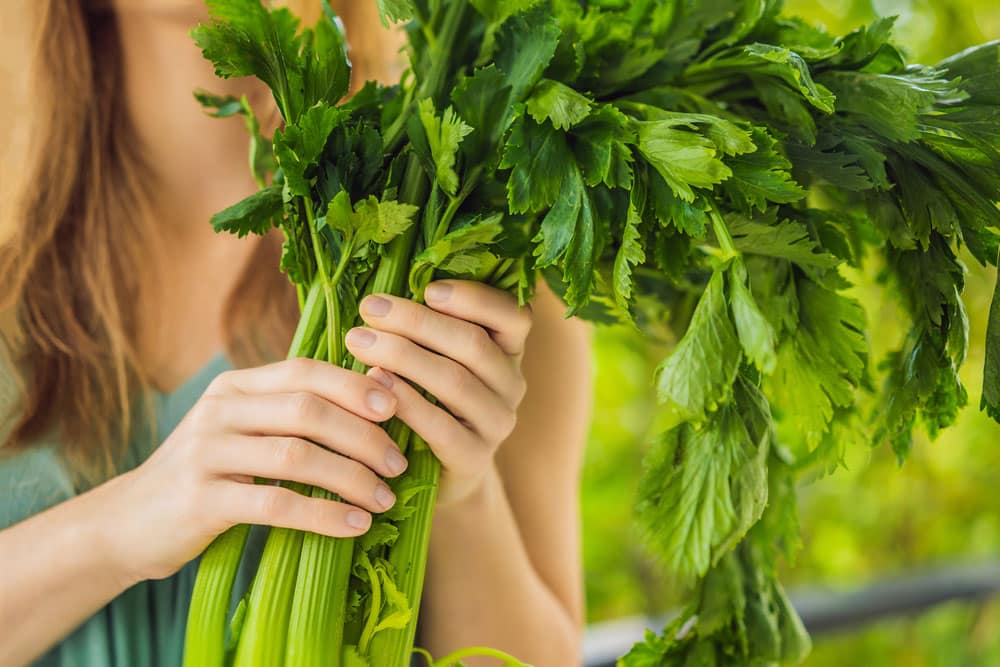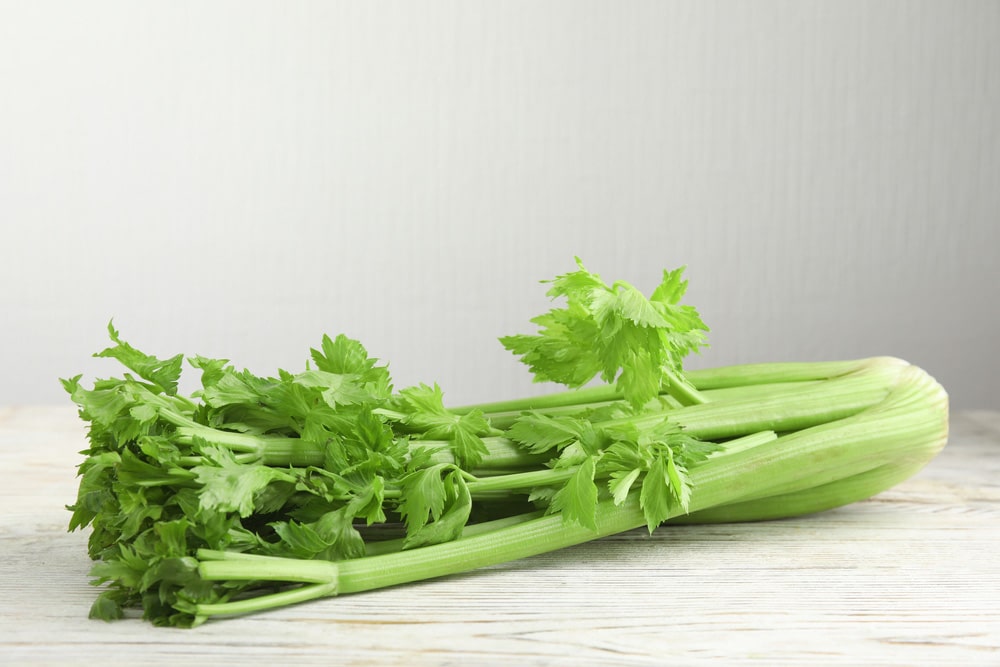
Vegetables are an essential part of our daily diet. Sometimes they are badly cooked so that much of their value is lost. The goodness is thrown out with the cooking water. Celery is part of the Apiaceae family.These are aromatic plants with hollow stalks or stems.
Cooks love these kinds of vegetables in soups and stews because they’re packed full of flavor and goodness. Celery is also crunchy and fibrous and can be eaten raw or cooked. It’s great for adding to lots of dishes. When it’s cooked, it has a sweeter taste than when eaten raw.
Certainly, celery is a staple in stews and soups. This is because although the leaves tend to be a bit bland in taste, the stalk is salty and juicy. Celery’s flavor depends a lot on the kind of soil it is grown in. Is it the soil then that sometimes gives celery a soapy-like taste?
Why Does Celery Taste Like Soap?
Who wants to add soapy-tasting celery to their soups, salads, and stews? The cool thing about celery is that it’s easy to prepare, it’s a low-calorie food, and it provides us with numerous health benefits. It’s got antioxidants that play a role in preventing disease.
But can this be said for celery that tastes like soap? Let’s take a look at what could possibly cause celery to have an unpleasant soapy taste.
- The condition of the soil influences taste
Expert gardeners know that you have to get your soil in shape first before you plant vegetables. Poor soil will take some time to prepare. Organic substances are the primary means of building good soil. The best source for this substance is manure, such as cow manure.
The manure increases the ability of the soil to hold moisture and promotes root development. You can grow celery from seed or you can plant young plants but you can’t let the soil dry out. Choose a planting area that receives direct sunlight.
Plant your celery about 9 inches apart. Planting at this distance also provides shade between the celery. To plant trenching varieties of celery, the trenches would need to be about 11 inches apart. Give celery nutritious soil enriched with compost or manure and it will grow well.
Give it chemical fertilizers and pesticides and you’ll reap bitter, soapy-tasting celery. If soil composition makes vegetables taste a particular way, what kind of soil makes celery taste like soap?
Soapy or bitter tasting celery can be caused by poor growing conditions, lack of nutrients in the soil, and extreme temperatures. Is your soil nutritious enough for vegetable growing? You can also have a soil test done to show what nutrients are missing from the soil.
The test will supply you with directions as to the amount of manure and organic fertilizers you need to supplement your soil. Certainly, on rich, tended soil, plants grow superior.
- Pesticides can be absorbed
Pesticides added to soil can also contribute to the unpleasant taste of celery and to it becoming a dietary risk. Celery is rich in phenolic and antioxidant compounds, and it has antioxidant, anti-inflammatory, and anti-allergic effects. As a biennial herb, celery is cultivated all over the world.
Pesticides are used to control pests. The global use of pesticides has led to an accumulation of soil that is now posing potential ecological risks. Celery hosts quite a few insect species, and chemical pesticides prevent insects from damaging crops.
Do you want to use harsh chemical pesticides? They are most times toxic to humans, but they can alter the way celery tastes. However, this will depend on the amount and concentration of the pesticide.
- Insecticidal soap
This soap used to deter insects isn’t absorbed into isn’t drawn into the plant but it remains on the surface of the plant. If you don’t wash your celery properly, you’ll know why your celery has a soap-like taste.
Of course, you can make your own insecticidal soaps with the use of things such as dishwashing liquid and vegetable oil in water. It’s not dangerous if you ingest it, but it can leave your celery tasting soapy if not thoroughly washed.
When taking on insects in the vegetable garden, first identify the species of insect because there are some insects that are considered beneficial to the garden.
- Rising temperatures
Like all other growing things, celery plants have preferences as to the temperatures they like best. You can safely say that celery is a cool-weather plant. Celery doesn’t respond well to high temperatures and prefers to grow in cooler conditions.
Celery loves growing in cool temperatures because of its low tolerance to heat. The plants love cloudy, cooler weather. The celery plant prefers temperatures of between 15 and 21°C.
If temperatures do rise consistently, more so when the stalks are reaching maturity, the heat can cause the stalks to develop a soapy taste. Temperatures often rise during the day.
Try to water the celery early in the morning to ensure the soil is cool and moist during the day when temperatures rise. If high temperatures are a consistent problem, a good idea is to put up some shade cloth.
Unfortunately, our fruit and vegetables are beginning to be less crisp with rising temperatures and the taste isn’t right either. Reports are warning us that increased temperatures are changing the way our fruit and vegetables taste.
- Lack of water
Fruits and vegetables are less crisp, and vegetables like celery can develop a weird taste when they don’t get their proper quota of water. It’s an unpleasant, soapy, bitter taste not worth adding to soups and stews.
- Celery plants are thirsty
We’re living in difficult times with global warming causing rising temperatures and less water. Before you plant the celery, keep in mind that they are thirsty plants that appreciate regular watering. Lack of water stresses the plants and they become super bitter and soapy tasting.
Proper watering can mean more flavor with celery. How a person waters has an impact on the taste of their harvest. Celery is shallow-rooted, so frequent watering is required for the roots to become established.
Sufficient water ensures normal growth and great tasting celery. Water your celery every other day in hot weather.
Municipal tap water can contain plenty of contaminants, and the water is treated with chlorine to kill bacteria. It can leave your water with a soapy or chlorine-like smell that can make your vegetables unpalatable.
Your garden water can also have lead, which can be absorbed by your plants. Speak to a water treatment professional and have your water tested for these contaminants. They’ll be able to guide you as to what options are available to you to make your water safer and your vegetables better tasting.
- Plants are too mature
Soapy tasting celery can be the result of poor growing conditions. You may even have allowed your celery to become overly mature. If it does taste like soap, cooking it can lessen the unpleasant flavor.
We’ve mentioned a few things that can contribute to great tasting celery, such as good soil, the right temperatures, and sufficient water. These can all help towards growing great-tasting celery. But then you also have to do your part and ensure your celery doesn’t grow beyond its “sell-by-date”.
You can expect to wait between 3 and 5 months after planting your young celery to harvest it. The stems are usually about 6 inches in length. Most celery varieties are ready to harvest when the base of the plant is between 2 and 3 inches.
You can either harvest the outer stalks or remove the entire plant. Celery flowers lead to seed, but by this stage the stalks of the celery plant are bitter with thick strings. This flowering in vegetables is known as bolting, and with the celery plant, it is wanting to seed.
Celery isn’t at its best after bolting, but the taste is altered in mature plants. Wouldn’t you rather prefer the crisp, firm stalks with their sweet flavor? Celery plants taste unpleasantly soapy and bitter when they are left to mature beyond their perfect harvesting time.
Conclusion
Besides the right time to plant and getting the vegetable garden set up to receive the right amount of sun, you also need to prepare the soil for your celery plants. Great tasting vegetables can’t be automatically expected when you grow your own vegetables.
There are several things you need to be aware of if you want to avoid bland or soapy tasting celery. Taste and flavor might not be the top reasons that people grow their own food. They don’t like the rising price of store-bought vegetables.
It’s why so many people are putting so much emphasis on home food production. Many of the so-called fresh vegetables you buy in the store haven’t the taste or value of the same foods in your garden. Harvest your celery when it’s tender.
Celery doesn’t grow evenly from day to day, and good rains followed by sun can encourage unusual growth. It’s why it pay to inspect your celery gardens every day as the plants mature. Pick them on the tender side for great taste.
They’ll certainly taste better than the larger, longer, older, soapy-tasting plants you mostly find in your local store. Never pick your celery ahead of time – wait until you’re going to use them and then bring the fresh celery from your garden to enhance the dish you’re busy with.
